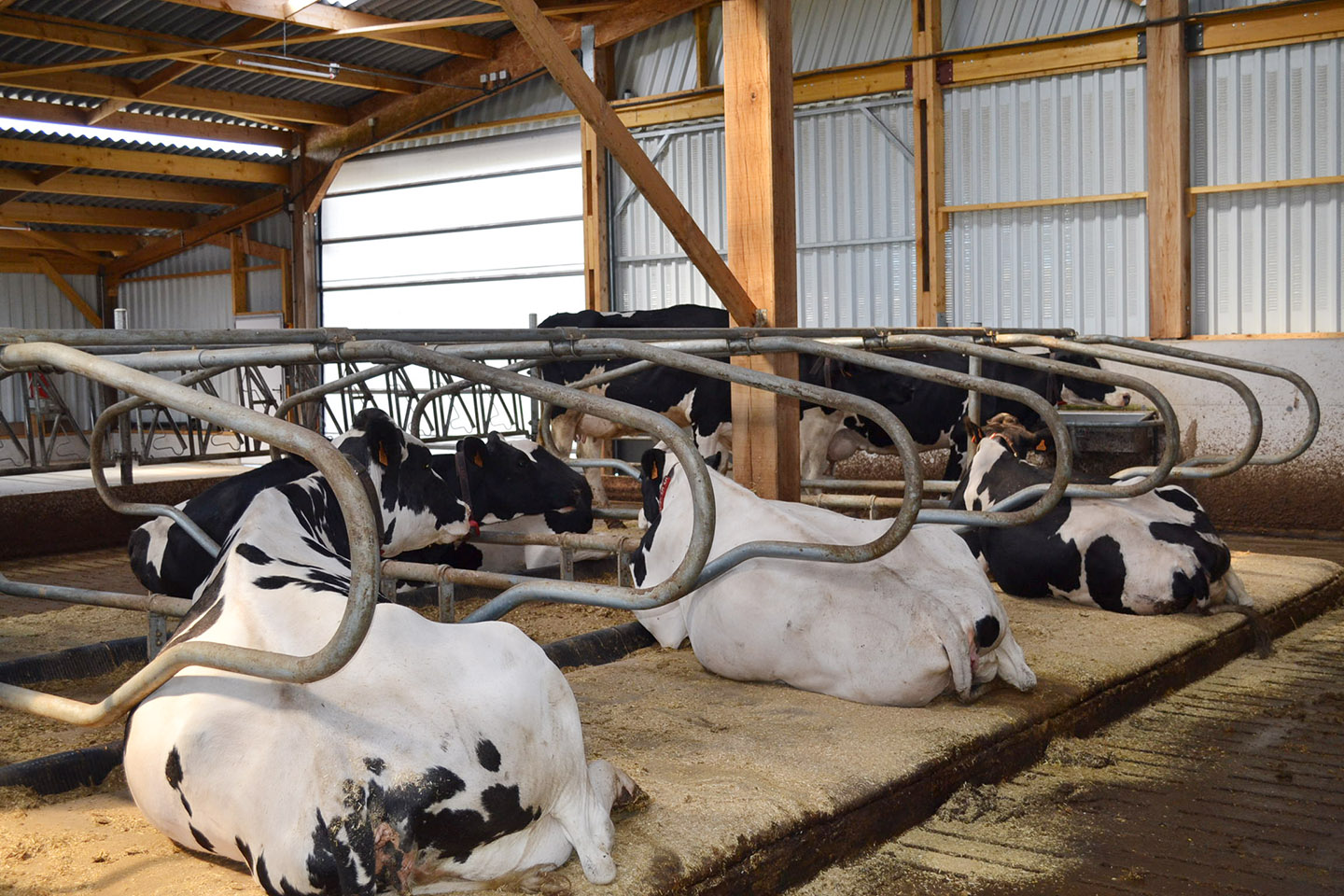
Animal welfare and Artificial Intelligence: The winning duo
Learn more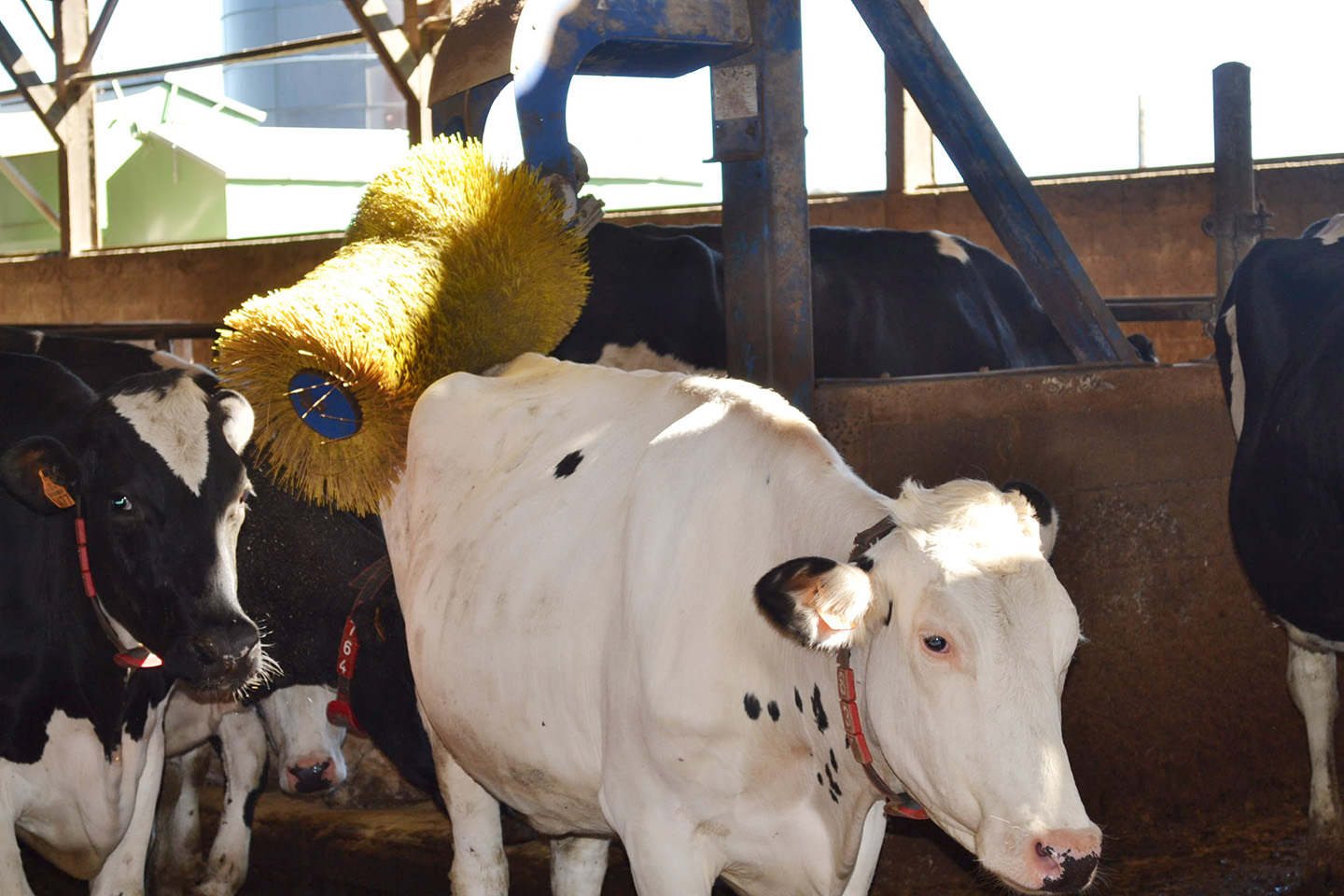

Use careful observation of cows to assess their welfare level
Some of the visited farms see a drop in production, an increase in lameness or a change in the behavior of a cow or the herd as a whole. Together with the farmer, you have already tried to control the situation, but difficulties persist.
What if the problem is due to a malfunction in the barn? Are the cows comfortable enough? Are there any nocturnal nuisances that disturb the animals' tranquility?
While some criteria are immediately detectable with the naked eye, others are much more difficult to observe... unless you stay camped out in front of the stalls 24 hours a day!
The thorough observation of cow behavior is therefore crucial in defining levers for action.
Cameras watching over the herd
Imagine cameras placed in the stalls that monitor the animals 24 hours a day, detecting risks or abnormal behavior and alerting you if there is a problem!
Know that this type of equipment exists and that it allows you to follow the herd from a distance and ensure/keep track of:
- The comfort of the animals, by observing their in-house movements,
- The detection of possible health problems,
- The observation of individual and collective behavior,
- Meeting animal welfare expectations of consumers who are increasingly concerned about the conditions under which animals are raised.
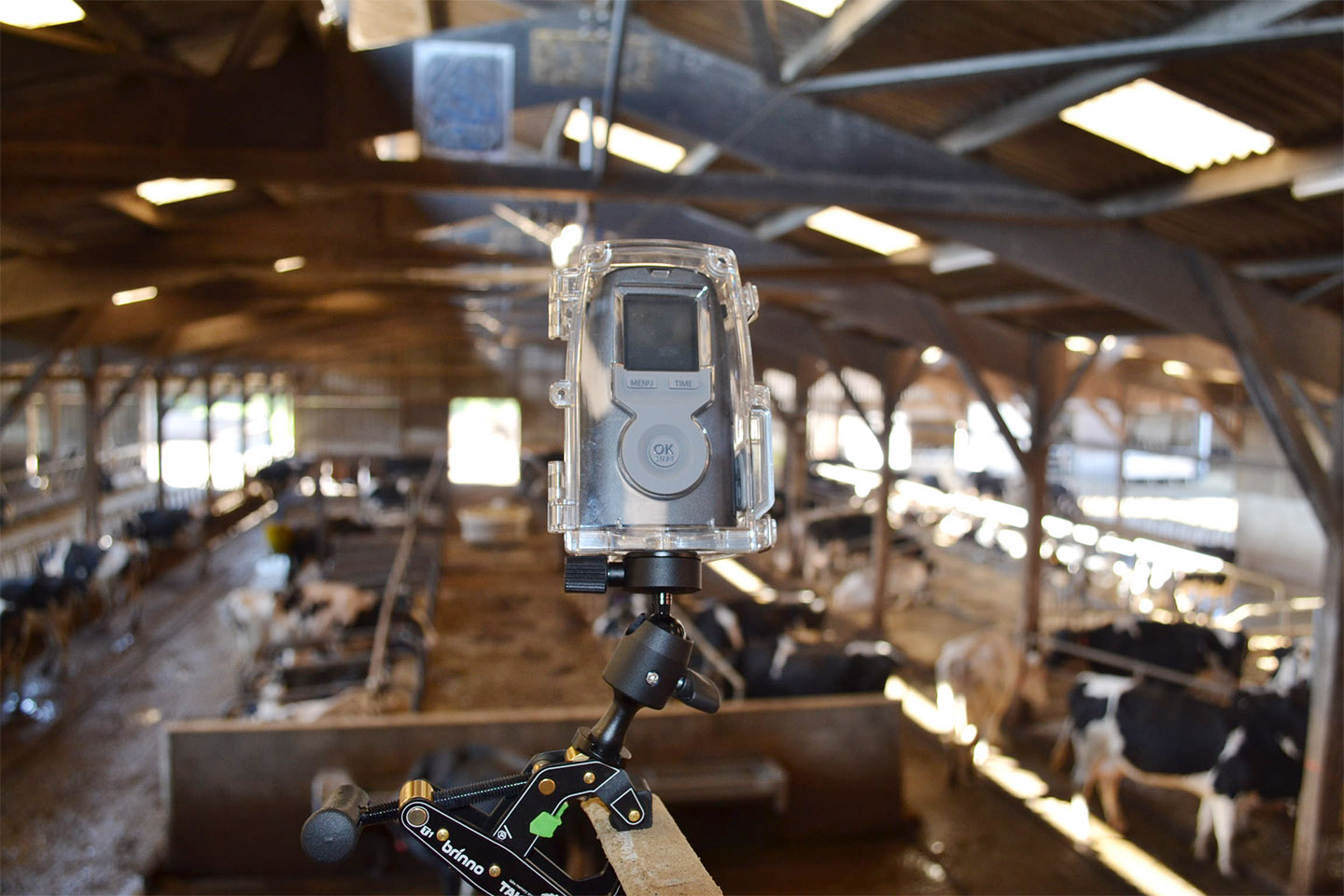
Artificial intelligence keeps a close eye on cows’ welfare
Artificial intelligence and computer vision are proving to be powerful relays in the precise observation of the herd. But what are the data points where artificial intelligence can provide real added value in terms of animal welfare?
The comfort of the building
The atmosphere of the building is an essential criterion for the comfort of the animals. If the cows sleep in cubicles/stalls, are these comfortable and well dimensioned? Is the traffic in the building fluid and which areas are under frequented? Are the height of the feed fences and trough access appropriate?
These are all criteria that surveillance cameras can analyse and detect for you in real-time.
Trough access and water points
Are you sure that all cows have proper access to the trough? How often will they feed? If the farm is equipped with ACF (Automatic Calf Feeding), beware of competition between cows in the herd and the risk of nutritional imbalance.
There are many avenues to explore to try and find a solution to feeding problems.
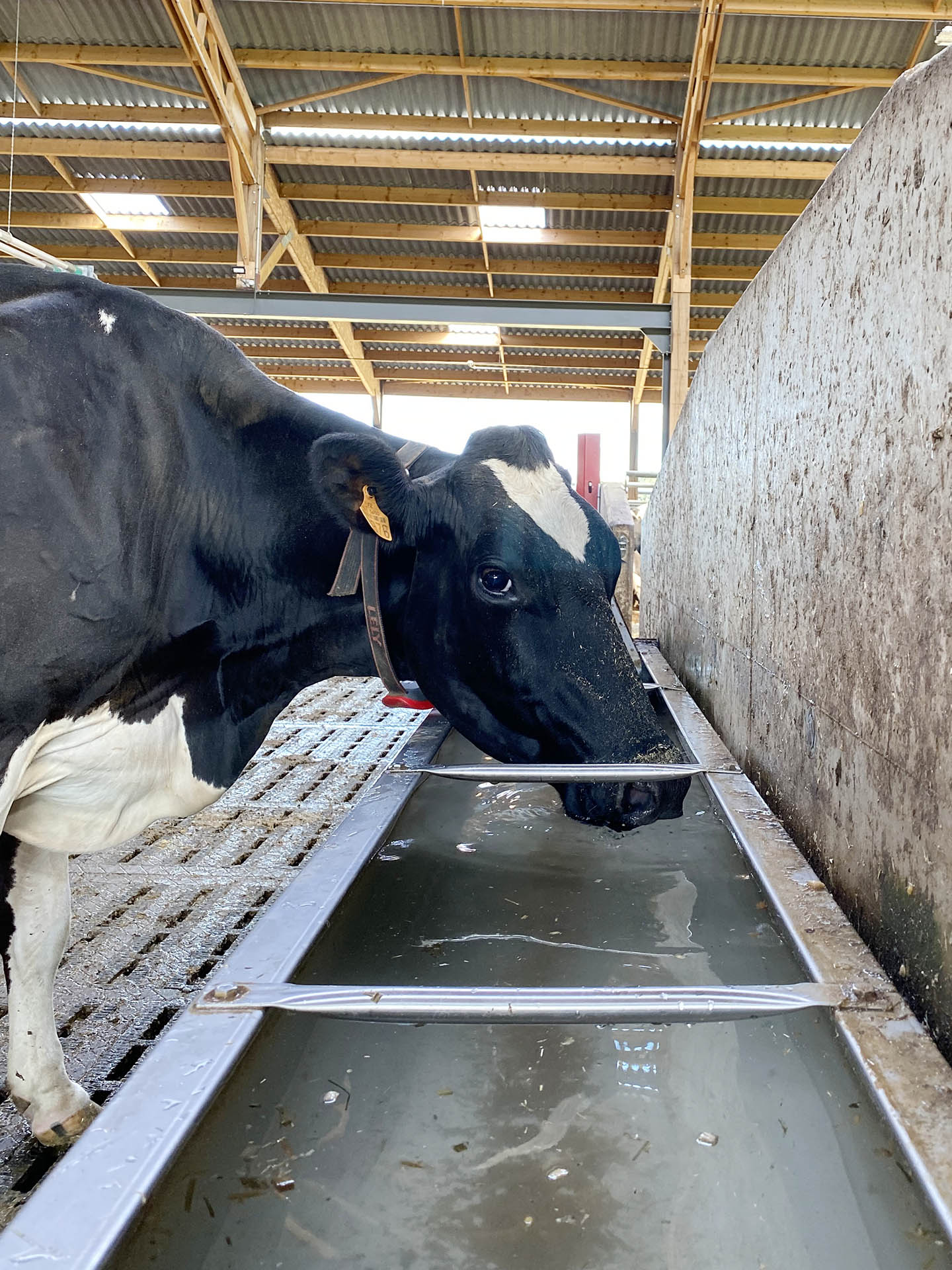
Measuring lying time to ruminate
Contrary to popular belief, a cow only sleeps 30 minutes to 1 hour in real sleep per day!
On the other hand, a cow spends more than half of the day lying down and it is during this period that she produces the most milk. A cow lying down and ruminating is therefore synonymous with production.
To ensure and promote sufficient and appropriate lying behaviors, is it not interesting to count the number of cows lying down at different times of the day and night?
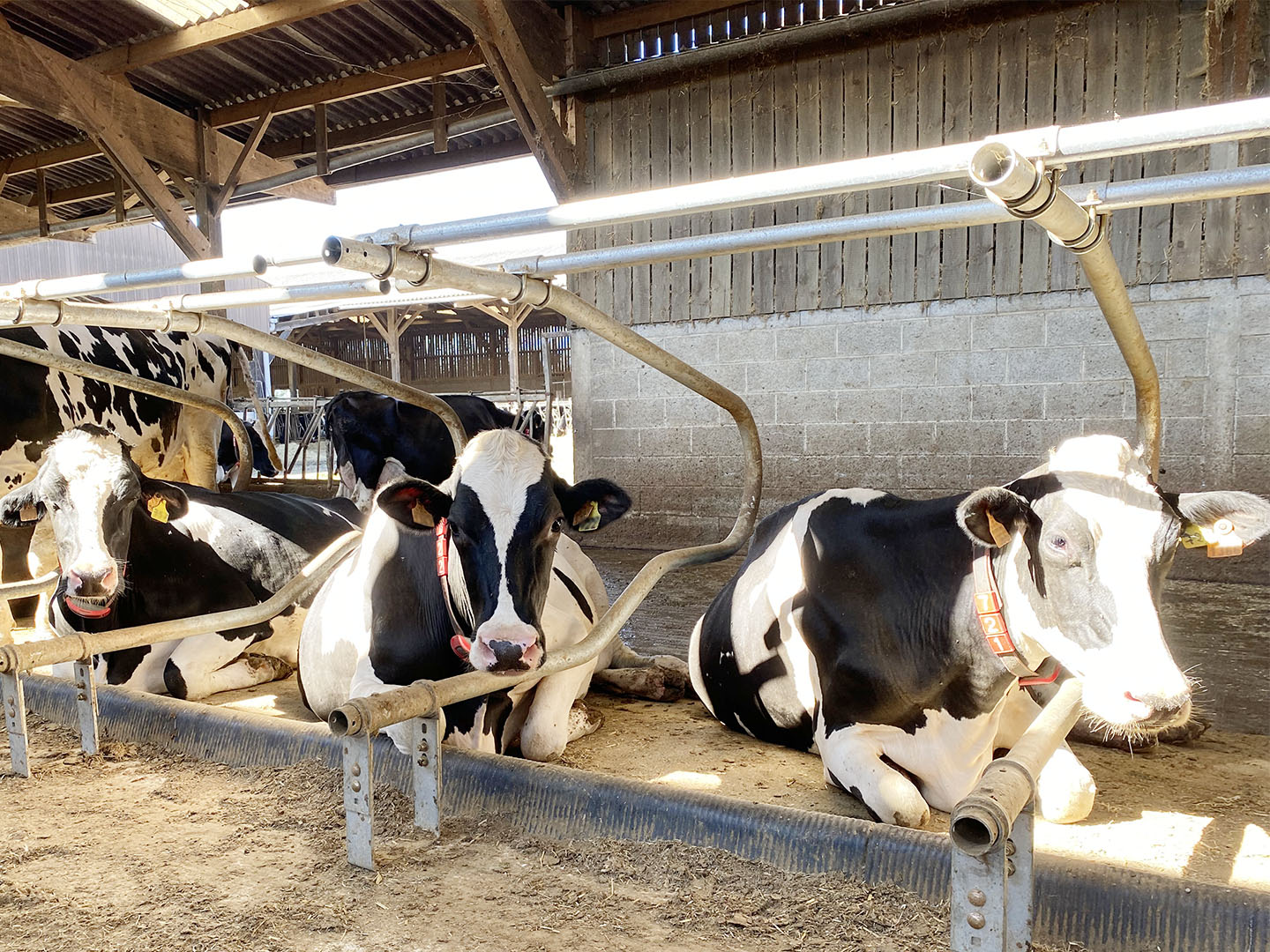
Why is automatic image detection ideal in terms of animal welfare?
In itself, this solution respects the animal cycle due to its distance from the herd. Installed at different strategic locations (defined in advance) in the building, cameras blend in with the surroundings and discreetly watch over the cows.
Respect for the animal's natural cycle
Image detection and analysis through surveillance cameras is a non-intrusive system for livestock. No need to burden cows with sensors or probes: cameras observe, detect and analyze remotely without disturbing the herd.
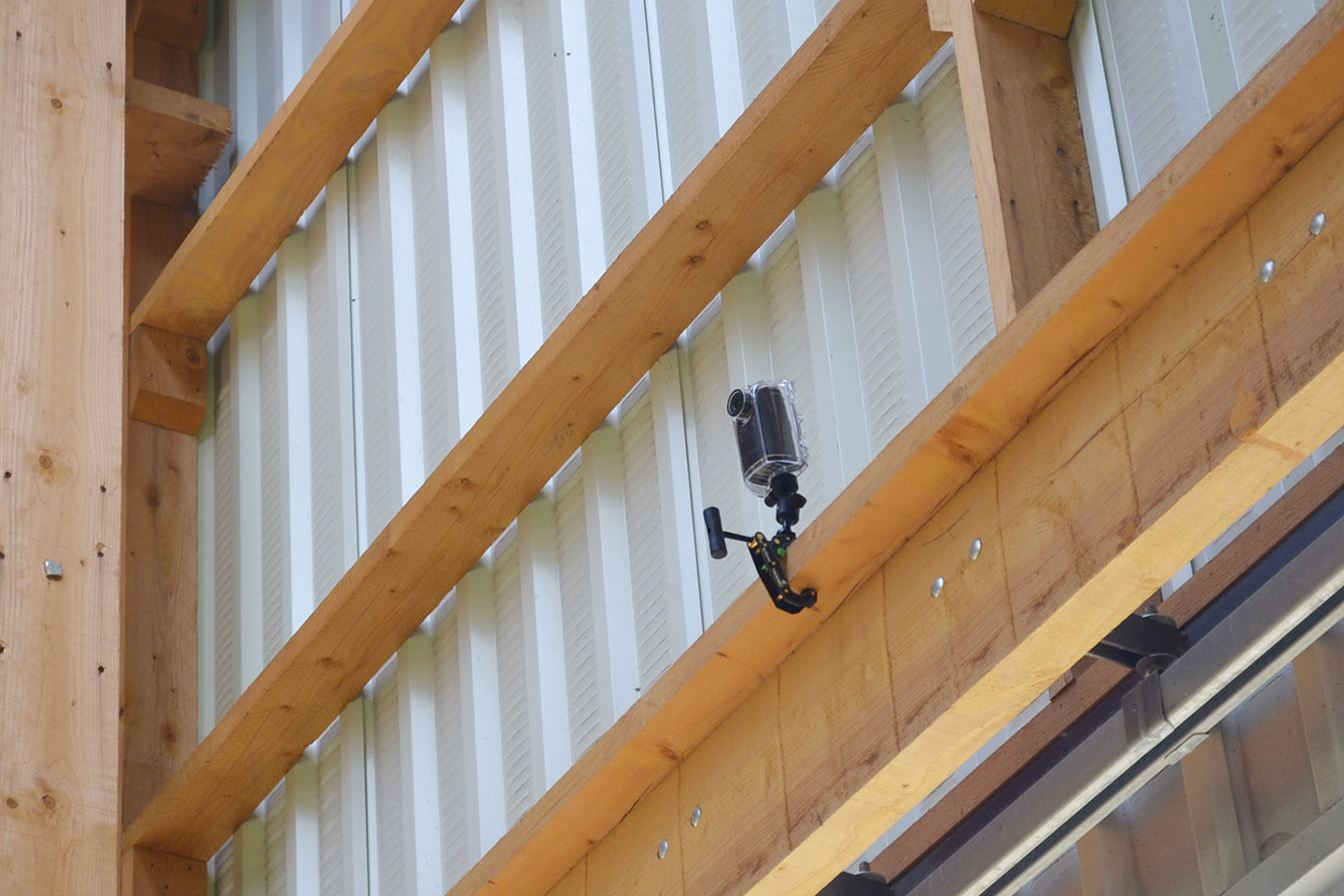
Time saving
Because your time is limited, cameras require very little maintenance once installed.
- For breeders : No handling is required, the installation company takes care of everything! Contrary to some sensors, cameras do not require any particular maintenance.
- For the adviser, the breeding consultant or the veterinarian: no more need to watch hours of timelapse videos to detect a situation with the naked eye. The algorithms alert you in real time as soon as a situation for which they have been trained occurs.
Reliability day and night
Artificial intelligence is a powerful and reliable technology. There is very little margin for error because once perfectly trained, neural networks do not weaken and do not let anything pass (unlike the human eye!). We are used to say that "what the naked eye can observe, the AI detects it too but better"
Cattle surveillance can be programmed 24 hours a day - 7 days a week, day and night (depending on the type of cameras installed). This is very useful if you notice unrest in the herd and don't know the reason why. At night, the discretion of cameras may be able to help detect intrusion by an animal disturbing the cows.
Towards a digitized advice
The current crisis is changing our habits. Forced for several weeks to pursue our activity at a distance, we have changed our way of working, willingly or unwillingly.
While some companies, already very agile, have managed to preserve this link with breeders, others have been hit hard by the crisis, for lack of a suitable solution.
Saving time for the most distant advisors, consultants and veterinarians, while keeping a foot in the door of cattle farms, is the choice made by an increasing number of businesses. Artificial intelligence can help you in your quest for performance and give you a real competitive edge that will allow you to ensure the sustainability of your business.
Few companies today are capable of providing you with this type of solution. Dilepix, through its expertise and its proven technology for more than 15 years, assists livestock consulting companies, agricultural cooperatives and veterinarians in their search for innovation and competitiveness.
My project ?
I want to know more about your automatic monitoring solution in cattle breeding

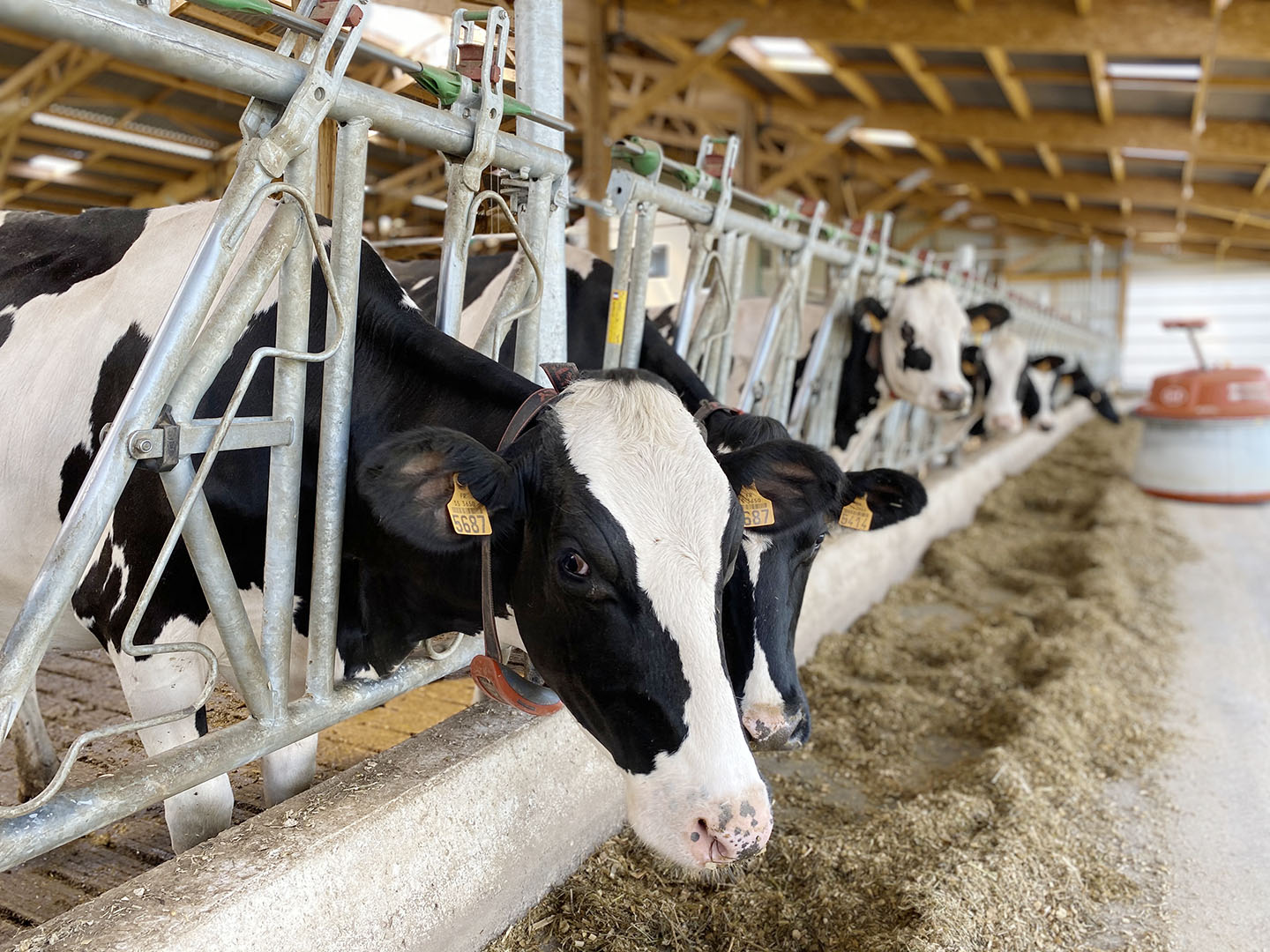
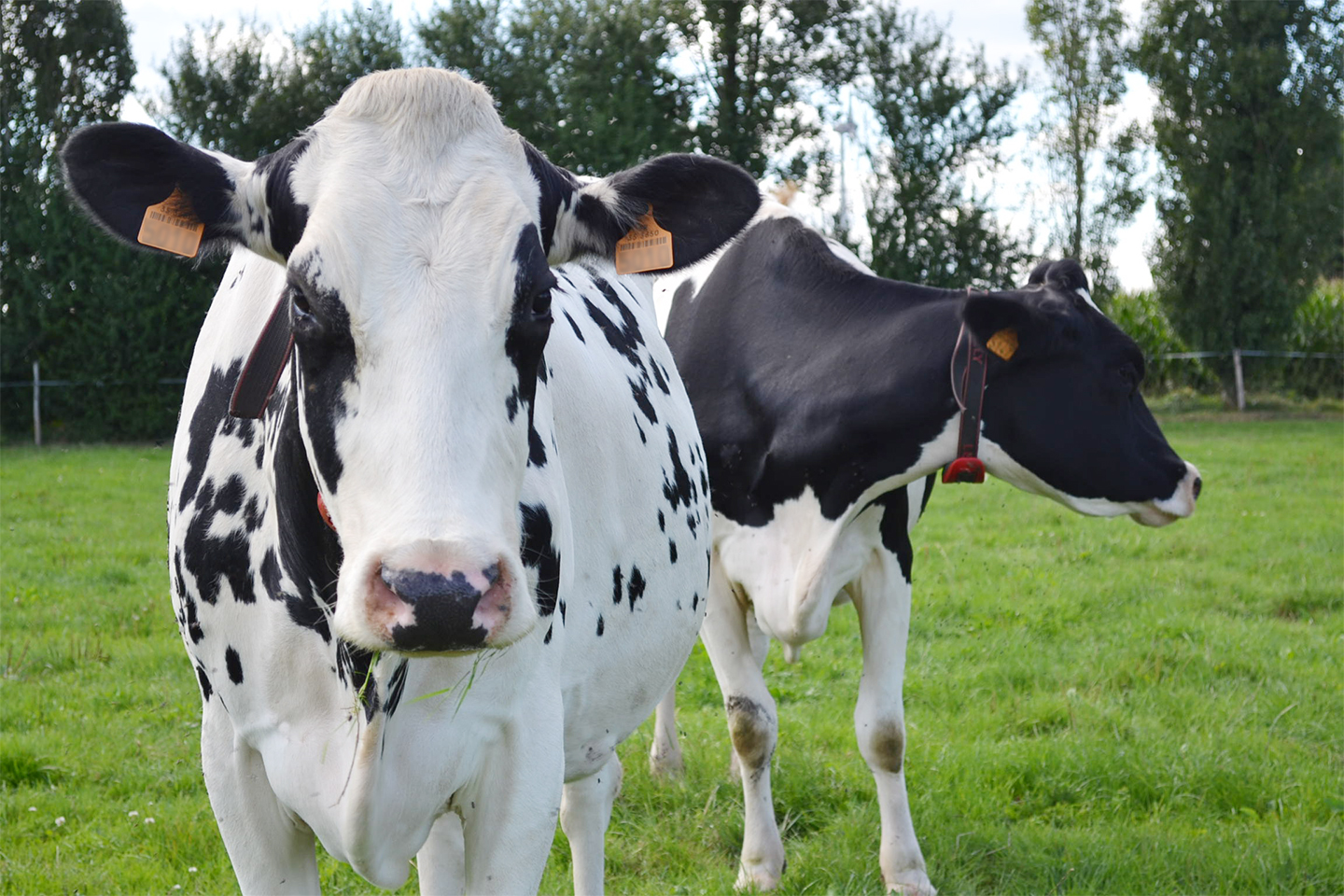
Newsletter subscription
Every month, receive a concentrate of artificial intelligence in your mailbox!
By subscribing to our free newsletter, you will benefit from :
- Our technical contents written by our teams
- Our advice for the use of AI in livestock farming
- Our educational tools to better understand what deep learning is
- Our latest news
- Our events